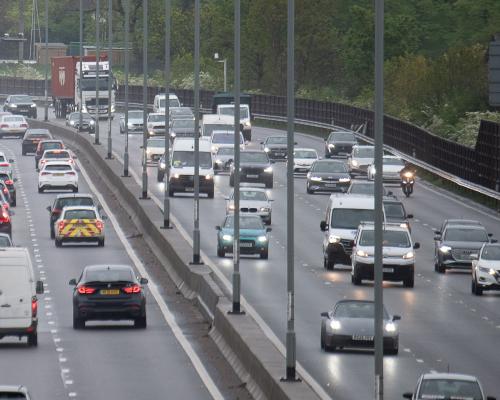
Millions of people are in line for payouts after the City regulator announced on Sunday that it would launch a compensation scheme for people affected by the car finance scandal.
Here we explain who might be eligible, how much they might receive and what they need to do.
Why is this happening now?
On Friday the supreme court largely overturned last October’s court of appeal ruling on car finance that could have led to compensation payouts of up to £44bn. The Financial Conduct Authority (FCA) set out its plans for a redress scheme 48 hours later, saying it would consult on a scheme covering loans dating back to 2007, with estimates putting the total cost to lenders at between £9bn and £18bn.
Why is there a redress scheme when justices mostly backed lenders?
It’s partly because the FCA has been running its own investigation into so-called discretionary commission arrangements (DCAs), a particularly controversial type of car finance.
With these deals, motor finance lenders – typically banks – gave dealers the power to set interest rates on car loans, with dealers getting more commission the higher the interest rate. This practice, which allegedly incentivised dealers to overcharge customers, was banned by the FCA in 2021.
Given the regulator’s concern, it was always likely that many DCA cases were going to be in line for compensation; about 14.6m contracts included this arrangement between 2007 and 2020.
The FCA is proposing that the compensation scheme covers DCAs “if they were not properly disclosed”, – believed to be the case for the vast majority of the loans.
However, the supreme court also upheld one of the three test cases on Friday – not a DCA one – deeming it “unfair”. This was due to the size of the commission paid to the car dealer – a particularly large 55% of the total cost of the credit (in other words, the interest and fees) – and a failure to explain the structure of the deal clearly enough in documents provided to the customer.
The FCA said that that court decision “makes clear that non-disclosure of other facts relating to the commission can make the relationship unfair”.
Many people, therefore, who signed car finance deals between 2007 and 2024 whose agreement did not include a DCA may still be in line for a payout if there are unfair elements. However, this potential payout will depend on the facts of each case. Clearly a large commission could be a factor, and others will be how financially literate the borrower was when they signed the contract, and how much information was provided to them.
I think I’ve been affected, how do I get my money?
The regulator will start consulting on the scheme by early October. The consultation is due to take six weeks and the FCA aims to finalise the scheme “in time for people to start receiving compensation next year”.
People who have already complained do not need to do anything as they should be “in the system”. For the rest, the FCA says: “Consumers concerned they were not told about commission and who think they may have paid too much for the finance should complain now.”
The MoneySavingExpert website has free tools that create an email for you to send to the relevant lender based on your answers to a few key questions.
Or you can complain yourself. It is free and simple, the FCA says. You will need to complain to the company you were paying each month, and ideally do it in writing.
Complaining now gives the company concerned a chance to track down your information, and if there is a problem it is probably better to know now rather than later.
Should I use a claims firm?
The short answer? No.
Claims management companies and consumer law firms have been touting for business for some time, and appear to be ramping up their efforts to encourage people who may have lost out to sign up.
But the FCA and Solicitors Regulation Authority (SRA) are concerned that some firms are not telling consumers about free alternatives, are making bold and sometimes misleading claims about payouts, and are charging fees worth up to 30% of any compensation.
Nikhil Rathi, chief executive of the FCA, said: “Our aim is a compensation scheme that’s fair and easy to participate in, so there’s no need to use a claims management company or law firm. If you do, it will cost you a significant chunk of any money you get.”
How much money might I get?
The FCA estimates “most individuals will probably receive less than £950 in compensation”.
It has previously said that in the case of loan agreements that included a DCA, consumers may have been overcharged by £1,100, as a result of paying too much interest on a typical £10,000, four-year car finance deal.
Some claims law firms have said some clients were charged much more, amounting to several thousand pounds in hidden commission.
Also, because the FCA thinks that the scheme should cover agreements dating back to 2007, there will be people who bought several cars during this period, who may be entitled to multiple payouts.
However, the FCA has indicated that it would need to balance the interests of consumers, firms and the broader economy when setting up a scheme. Presumably, that may mean people might not get back all of their “loss”.
That said, any amount people get is likely to be boosted by interest, which could add up to a reasonable amount if it is several years’ worth. The FCA said it planned to consult on an interest rate for each year of the scheme based on the average Bank of England base rate that year, plus 1%. “This would be in the ballpark of a simple [ie, not compound] interest rate of 3% per annum,” it said.
Will there still be records of my car loan after all this time?
Yes, this is a concern, as it is thought that most banks typically purge customer data after six years. The FCA ordered firms to stop deleting car finance documents when it launched its initial investigation in January last year. But the files relating to customers with contracts that ended more than six years earlier may have already been lost.
The Financing and Leasing Association, which represents leading car loan providers, said: “We have concerns about whether it is possible to have a fair redress scheme that goes back to 2007 when firms have not been required to hold such dated information, and the evidence base will be patchy at best. We will be interested to see how the FCA addresses this point in its consultation.”
However, many people will have kept their paperwork. During the payment protection insurance (PPI) scandal, banks were urged to err on the side of consumers, even when there was no documentation, but it is not yet clear if this will happen with car loans.







